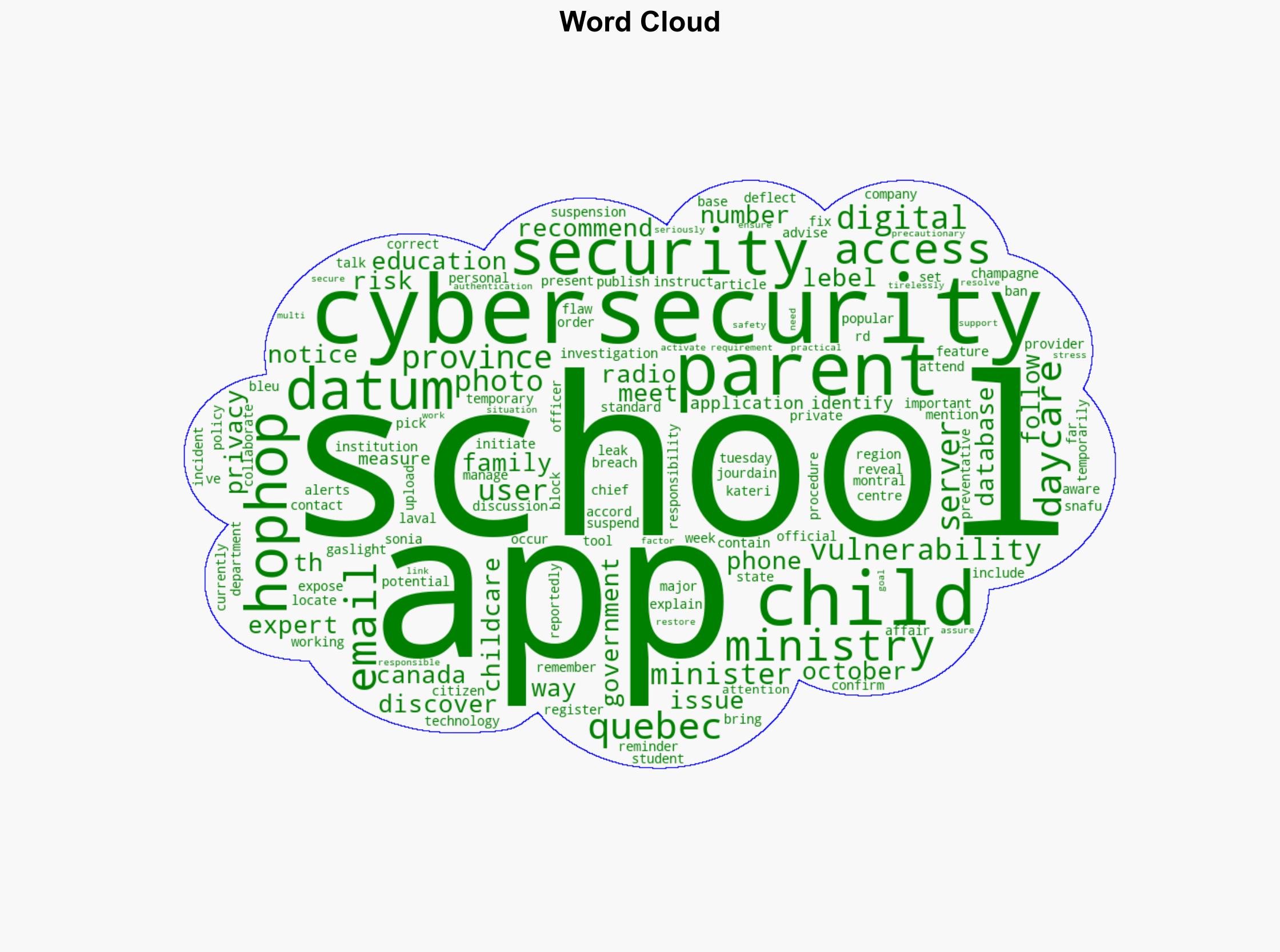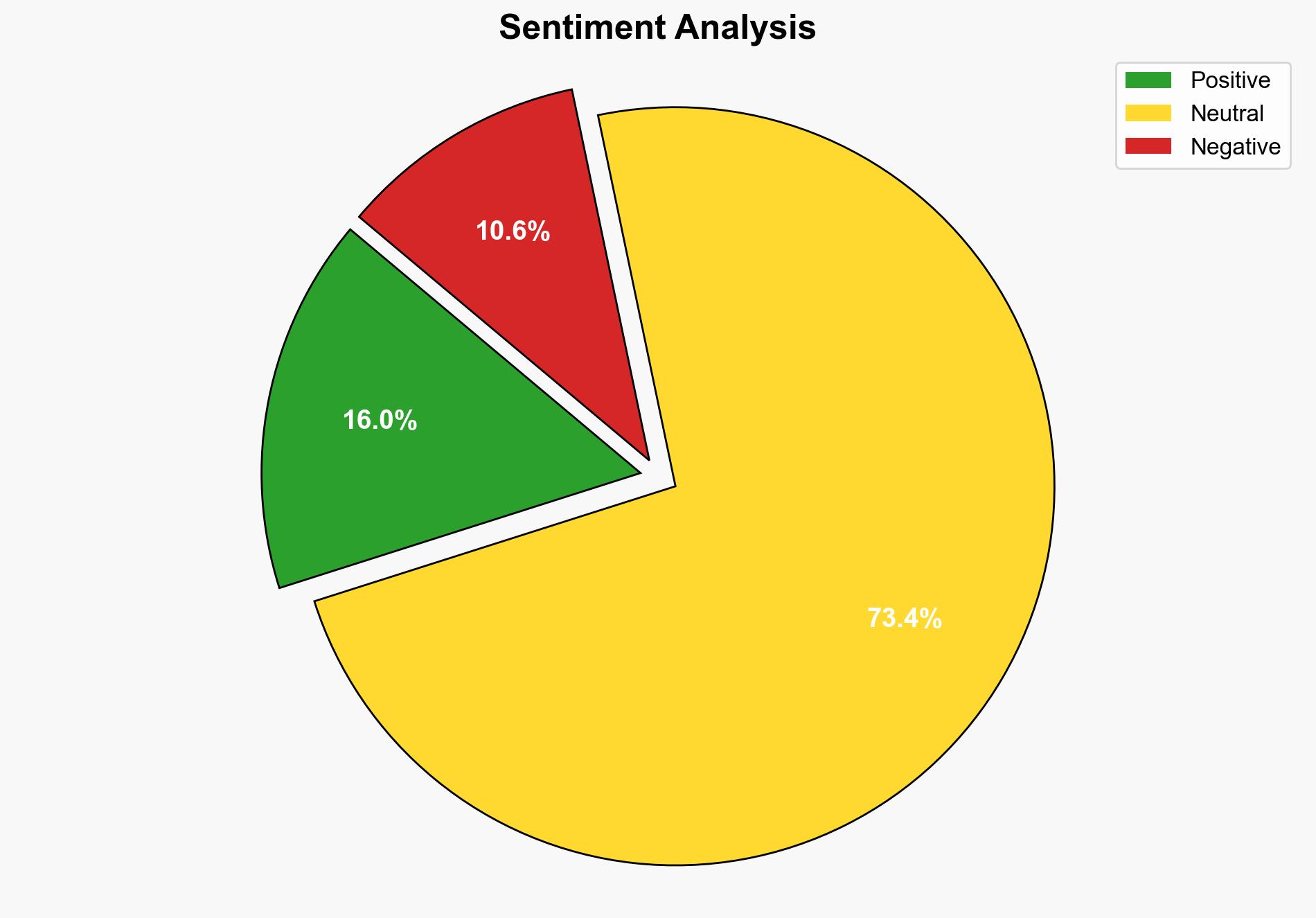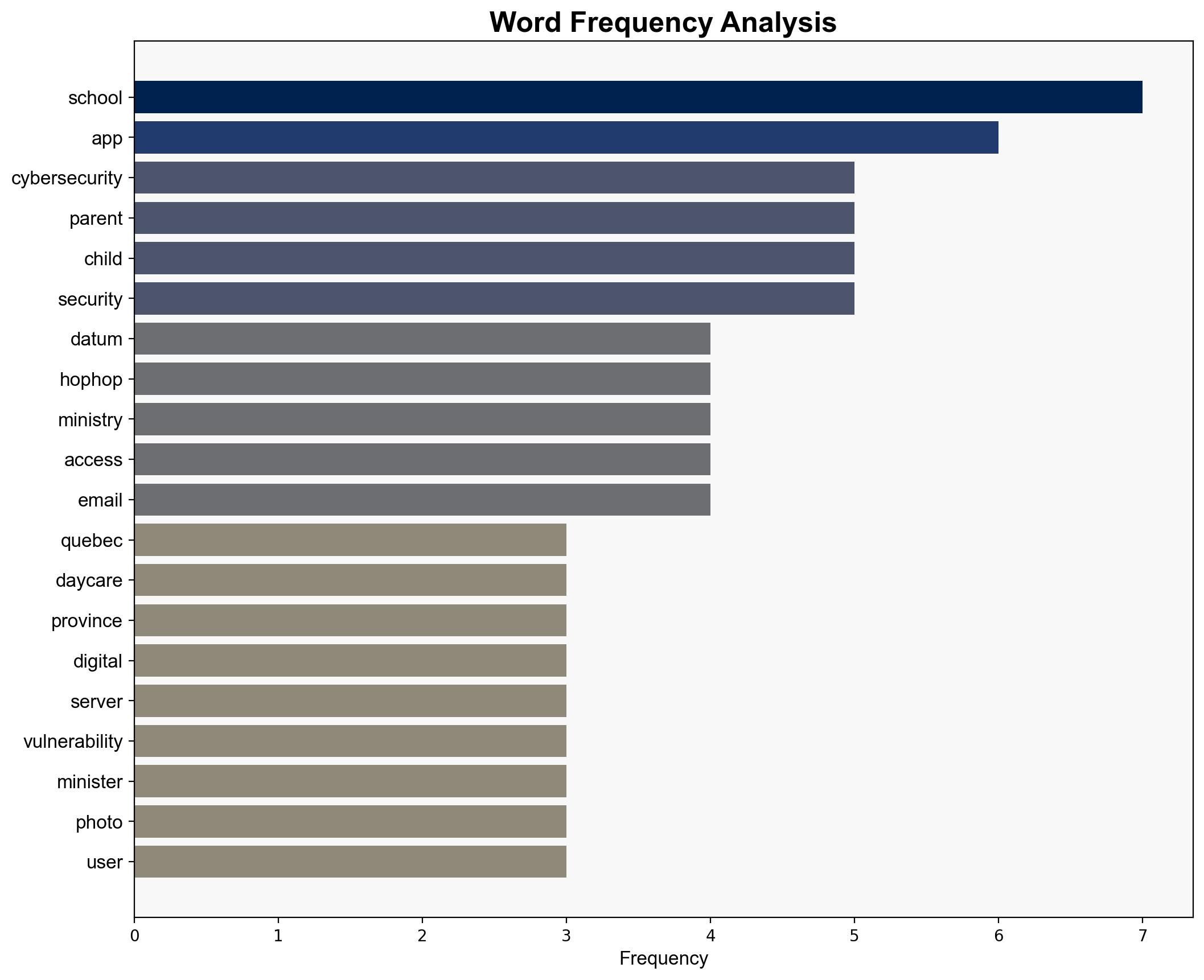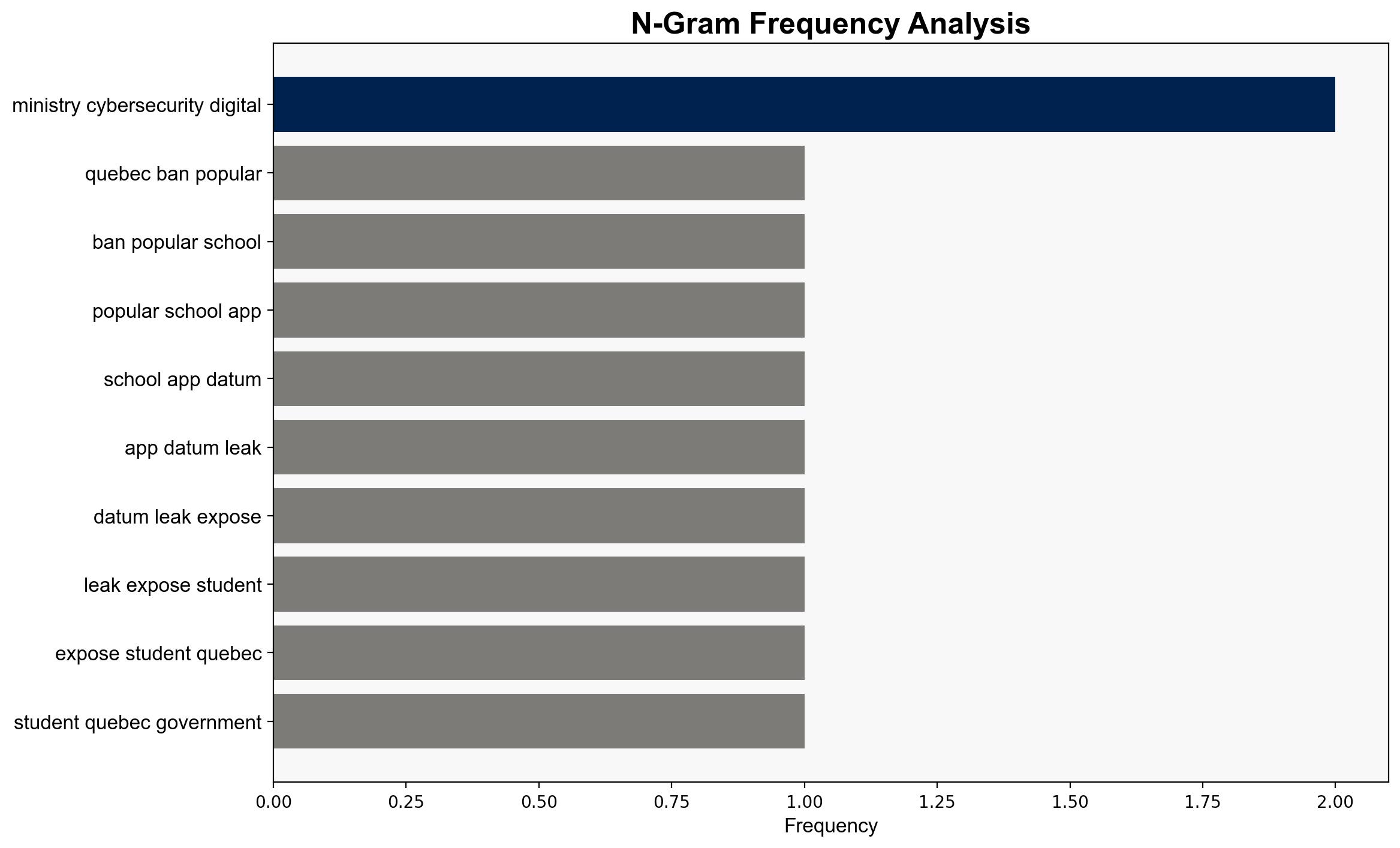Quebec Bans Popular School App After Data Leak Exposes Student Info – iPhone in Canada
Published on: 2025-10-08
Intelligence Report: Quebec Bans Popular School App After Data Leak Exposes Student Info – iPhone in Canada
1. BLUF (Bottom Line Up Front)
The Quebec government has temporarily banned the HopHop app following a data breach that exposed sensitive student information. The most supported hypothesis is that the breach resulted from inadequate cybersecurity measures by the app developers. The recommended action is to enhance cybersecurity protocols and conduct a comprehensive audit of digital tools used in educational settings. Confidence level: Moderate.
2. Competing Hypotheses
Hypothesis 1: The data breach was primarily due to insufficient cybersecurity measures by HopHop, leading to unauthorized access to sensitive information.
Hypothesis 2: The breach was a targeted cyberattack exploiting known vulnerabilities, possibly for malicious purposes beyond mere data exposure.
Using the Analysis of Competing Hypotheses (ACH) 2.0, Hypothesis 1 is better supported. The evidence indicates a lack of robust security protocols, as noted by the immediate suspension and the app’s ongoing efforts to fix vulnerabilities. Hypothesis 2 lacks direct evidence of a targeted attack or malicious intent beyond exploiting vulnerabilities.
3. Key Assumptions and Red Flags
Assumptions include the belief that HopHop’s security measures were inadequate and that the breach was not state-sponsored. Red flags include the delay in addressing known vulnerabilities and the potential underreporting of the breach’s scope. There is a blind spot regarding the full extent of data accessed and the potential for further exploitation.
4. Implications and Strategic Risks
The breach highlights vulnerabilities in digital tools used in educational settings, posing risks to student privacy and institutional trust. There is a potential for cascading effects if similar vulnerabilities exist in other applications. The incident could escalate into broader cybersecurity concerns if not addressed promptly, impacting public confidence in digital education tools.
5. Recommendations and Outlook
- Conduct a thorough cybersecurity audit of all educational apps in use within the province.
- Implement mandatory cybersecurity standards for app developers working with educational institutions.
- Scenario Projections:
- Best Case: Enhanced security measures prevent future breaches, restoring trust in digital tools.
- Worst Case: Additional breaches occur, leading to significant data loss and public backlash.
- Most Likely: Incremental improvements in security, with ongoing vigilance required to prevent further incidents.
6. Key Individuals and Entities
Sonia Lebel, Kateri Champagne Jourdain, HopHop, Radio Canada
7. Thematic Tags
national security threats, cybersecurity, data privacy, regional focus





